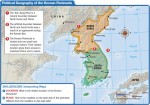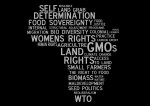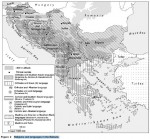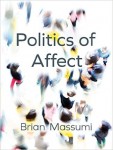Conclusion: Political Challenges and Evolving Government Structures
Much change has occurred in Japan's political system since roughly the mid-1980s. However, further progress needs to be made. Like any large nation in an increasingly interconnected and fast-changing world, Japan's problems are complex. The economy is always a paramount issue, and Japan has made substantial progress in rebounding from the serious malaise that lasted […]
The Real World of Japanese Politics: 1985 to the Present
The 1985 Plaza Accords, discussed extensively in the following chapter of this book, where Japan signed an agreement with other major developed nations to raise the value of its artificially undervalued yen, is now looked on as having subsequent major political as well as economic ramifications for Japan. After that agreement, Japan was forced to […]
The Real World of Japanese Politics: 1945–1985
As discussed both here and in the history chapter, democracy grew relatively rapidly in Japan, and the Japanese now have a more than 60-year democratic history. However, Japan's political history, culture, geography, economy, and changing position in the world, just as is the case with any nation, makes the nature of Japanese democracy unique in […]
Postwar Government and Politics: The Creation of Japanese Democracy and Its Structure
Japan became a democratic country with the adoption of the 1947 Constitution, which has never been amended and remains in effect today. However, since roughly 1985, domestic and international factors have resulted in new challenges and changes for Japan's political leadership. Before contemporary government and politics can be understood, a discussion of the creation of […]
Government and Politics in the Tokugawa Period: 1600–1868
As depicted in the prior chapter, in 1600 Tokugawa Ieyasu, through force of arms and diplomacy, managed to unify a Japan that had been torn by civil war for most of the previous century and intermittent internal strife for much of the 14th century as well. Tokugawa and his descendents who ruled Japan as shoguns […]
Introduction: The Roots of Japan’s Contemporary Government and Politics
Most readers of this book are Americans, and they have studied U.S. government. Imagine attempting to learn about how the American government works without some knowledge of the influence of Great Britain, the motives of the founders of the United States, the Declaration of Independence, the Articles of Confederation, and the formulation of the present […]
Government and Politics
hile has a democratic government that allows every adult the right to vote. Its laws apply to everyone. Its citizens have the right to receive fair trials, and they can meet and discuss freely their political and religious beliefs. As a democratic government, the nation educates its citizens, which enables them to make informed decisions […]
Government and Politics
Spain did not create political units on Cuba until 1827. In that year, the Spanish began to govern the island through three loosely defined departments: Occidental (Western), Central (Central), and Oriente (Eastern). The departments were under the command of a captain general who lived in Havana. Each department had several towns. The towns had broad […]
Government and Politics
Santo Domingo is the capital and largest city of the Dominican Republic. It has a history that stretches back more than 500 years to the time of brothers Christopher and Bartholomew Columbus. Bartholomew founded the settlement of Nueva Isabella (New Isabella) in 1496, which officially became Santo Domingo in 1498. Santo Domingo is the first […]
Poland: Government and Politics
After striving for many years to be in charge of their own affairs, Poles managed to topple the Soviet-supported authoritarian regime that ruled the country for several decades. In theory, Poland was an independent country pursuing its own destiny. In reality, its political leadership received instructions from Moscow. Puppet regimes often face popular discontent, and […]
Government and Politics of Ireland
Fado, fado, the Celts ruled Ireland as a multitude of kingdoms, with one overall, high king. When the Anglo-Normans came to Ireland, they ruled the area within their own kingdoms, building castles throughout the land. During British colonization, the Irish had little control over their land. As the colonizer, the United Kingdom ruled the land […]
Germany: Government and Politics
The modern political history of Germany is usually considered to have begun in 1871, when the German Empire was formed. It will be remembered that prior to this time, Germany consisted of hundreds of very small states that had been gradually unified into the 39 states of the German Federation. In 1848, representatives were elected […]
Belgium: Government and Politics
Belgium is a federal state in which amendments to the Constitution that were made in 1993 have resulted in a further reduction in the power of national government. What were formerly national powers have now been granted, at least to some degree, to regional and community governments. First, however, let us examine the various levels […]

Political Geography
A HUMAN PERSPECTIVE Abdoulaye Sowe, a Senegalese farmer, chose a spot to build his new house near the Senegalese border guard's shack. He believed the guard shack was in Senegal. But long-time residents of the area told him that, before the shack was built, a guard used to sit near a tree that was considered […]
Government and Politics
Epluribus unum is perhaps the best-known motto of the United States of America. Translated from Latin, it means “From many, one,” or “Out of many, one.” In working to achieve this goal, the nation's Founding Fathers and subsequent leaders faced a challenge of herculean dimensions. You have already learned that, from the very beginning, this land has been home to […]

Government and Political Systems
The political systems of most African nations are based on forms of government put in place by colonial authorities during the era of European rule. Because these governmental institutions reject the indigenous political systems on which African society was built, they have generally failed to bring political stability. Many local and regional governments borrow from indigenous systems, but national political structures […]

Global Politics and Africa
Global politics, or geopolitics, refers to the relationships and interactions among nations as they compete for power, influence, and economic resources. Since the 1600s the global politics of Africa have been marked by dependence on others. To a large extent, Africans have been under the control of outsiders from the time of the transatlantic SLAVE TRADE, to European colonial rule, […]
Politics of Classification: Ethnicity and Religion
Two of the most contentious of census variables are race/ethnicity and religion. On one level, this relates to the perception that these are private and sensitive issues, and many censuses present a question on religion as optional. More fundamentally, especially in the case of ethnicity, the politics of classification are significant, since 'ethnicity' is a term incorporating aspects of […]
Geographies and Politics of Households and Family
Although households have served as one of the two basic units of census enumeration, they represent a complex series of debates within the social science literature. In Progress in Human Geography there has been an ongoing debate about the pivotal role of the household in shaping the geographies of gender, home, and everyday life. For example, studies of urban gentrification and […]
Large Corporations, Political Regulation, Fordism, Mass Production, and Economies of Scale
In the last quarter of the nineteenth-century, the control and direction of large areas of industry came increasingly into the hands of banks and financiers. This era has thus come to be dominated by finance capitalism, characterized by the growth of large corporations – some of them developing into mammoth industrial cartels. The development of increasingly complex systems of […]
Biopolitics
Biopolitics and Place Horizontal Fix Geography and Biopower
Biopolitics and Place
Biopolitical interpretation of society is connected to the debate on the changes of life and work conditions in a world where precarious social relations prevail. It underlines the radical mixing of private and public spheres of life, emerging for example in the form of constant reorganization of families and communities under the pressure of neoliberal globalization. Human beings, both as […]
The Politics of Belonging
The fact that geographers now consider belonging as an issue of disciplinary interest is indicative of the increasingly fluid, uneven, and above all contested terrains of identity politics and social relations in the early twentyfirst century. Along with the unsettling of fixed and coherent identities associated with the relatively predictable concerns of early modernity, it is becoming more and […]

A Geopolitical Region Where Major Powers Meet: The East, the West, an ‘In-Between’ Europe
On 1 January 2006, the peninsula comprised eight states: Greece, Albania, Bulgaria, and, resulting from the dismantling of Yugoslavia, Macedonia, Serbia Monte negro, Bosnia Herzegovina, Slovenia, and Croatia. Turkey also has a fragment, and its first city, Istanbul. Romania is also sometimes classified as a Balkan state. The de composition of what was the Yugoslav territory until 1991 is still underway: Bosnia […]
Avant-Garde: Translating the Esthetic into Politics
Addressing the conceptual purchase of the avant-garde, one can combine the relationship of the esthetic to the political by unpacking the arts into three key categories – that of experience, performance, and expression – while distilling and summarizing their respective influence as manifested through, and housed within, the spatialities of particular institutions and communities. Within this telling of the avant-garde, it is […]
Asia as Political Ideology and Populist Movement
''My Asiatic blood has always called to other Asiatics. In my dreams, both sleeping and waking, I have heard the voice of Asia calling to her childreny. TodayyI seem to hearythe same voice of Asia gathering her children together. It is the call of our Asiatic blood. This is not the time to think with our minds; this is the […]
Critique of Anti-Geopolitics
The notion of anti-geopolitics is a very recent one, barely 10 years old. Some of its associated ideas have attracted analytical attention, such as the anti-geopolitical eye in feminist geopolitics. The term anti-geopolitics in itself, however, has not found widespread application to date. Its use has mainly been restricted to a handful of writers from the Anglo-American critical geopolitics perspective. It has […]
Anti-Geopolitics as Perspective
Geopolitics has always been a contentious form of knowledge and practice, and there have been many critiques to dominant geopolitical reasoning. These range from the orthodox Marxism of the German communist Karl Wittfogel in the 1920s to the poststructuralist interventions of the critical geopolitics school of the 1980s. More recently, feminist geographers have called for a feminist geopolitics. They expose the […]
Anti-Geopolitics as (Radical) Politics
The policies and strategies of empires, colonial powers, dictatorships, and states have rarely gone unchallenged by those who have been subjects to various degrees of domination and exploitation. Quite on the contrary, dominating power has almost always faced resistance from various forms of counter hegemonic struggles. Proponents of anti-geopolitics focus on the latter as enacting a geopolitics from below that emanates from subaltern […]
Origin and Context of the Term Anti-Geopolitics
The term anti-geopolitics emerged in the English speaking literature in the mid 1990s. Although the term is briefly mentioned by O Tuathail in 1996 (then spelt without hyphen as antigeopolitics), it was only in 1998 that it was conceptually developed in the first edition of the Geopolitics Reader, edited by O Tuathail, Dalby and Routledge. Subsequently, Routledge has published slightly edited versions […]
Anti-Geopolitics
Origin and Context of the Term Anti-Geopolitics Anti-Geopolitics as (Radical) Politics Anti-Geopolitics as Perspective Critique of Anti-Geopolitics
Political Impact and Deterministic Content of Ratzel’s Geography
Against the background of such statements most commentators, after the end of World War II and up until today, have come to think of Ratzel's geography in rather ambivalent terms. While the central role Ratzel played for the development of the discipline is mostly recognized, his anthropogeography has been criticized for being deeply environmental deterministic. Ratzel, so the general opinion, […]
Growing Focus on the Resource Geopolitics: Southern Polar Region during 1970s and 1980s
The 1970s were a landmark in the discursive transformation of the Antarctic. By this time a rather impressive outline of Antarctic resources had emerged as a result of extensive geological and biological research of the region. This was soon filled in by perceptions of the burgeoning population in terms of consumption and depletion of resources in the wake of the […]
Antarctica in the Cold War Ideological Geopolitics (1950s and 1960s)
The dominant spatial representations of the Antarctic during the 1950s were affected by the Cold War discourses. Earlier on, there were clashes between Britain and Argentina over the issue of territorial ownership. By late 1947, Antarctic affairs assumed immense significance in foreign policy considerations of the US, and the impetus for this shift in focus had more to do […]
Political-Economic Animal Geographies
Animal geographies that have utilized political economic analyses have mainly been found in rural and agricultural geographies. Such studies have at times focused on the development of certain intensive food production regimes as emblematic of current structures of capitalism. For example, studies have focused on chicken and hog intensive production systems in the USA, amongst other matters. Here, animals were always […]
Political Geographies of the Sea
Historically, when human geographers have studied the ocean, they most often have looked to the sea as a space of politics and, in particular, as an arena for geopolitical conflict. The ocean has been viewed as a space in which the forces of land based states meet as each attempts to control crucial areas of the sea (e.g., choke points […]

Conclusion: The Politics of Affect
For human geography, and for our roles as researchers, thinking with and using the concept of affect plugs us into the qualitative means and strategies we have for investigating the everyday worlds in which we live. Affect based research thus operates a strong political gesture in directing attention to the affective affinities produced among forms of life where we […]

political geography
POLITICAL GEOGRAPHY IS the study of the ways geographic space is organized within and by political processes. It focuses on the spatial expression of political behavior. Boundaries on land and on the oceans, the role of capital cities, power relationships among nation-states, administrative systems, voter behavior, conflicts over resources, and even matters involving outer space […]

geopolitics
GEOPOLITICS IS POLITICS taking place in regard to geographical circumstances, territorial relations and aspirations of political entities. It derives from the spatial settings of place as well as from territoriality as a universal dimension of human (and animal) behavior. While the spectrum of geopolitical action is very wide, it is never just derived from “geographic […]

boundaries, political
POLITICAL BOUNDARIES are frequently defined as borders constructed and imposed on or around a geographic territory in order to distinguish between areas of governance or types (strategies) of political control. They function both as a tool for managing a group of peoples and as a way of minimizing conflict and organizing efficient political units. Political boundaries […]